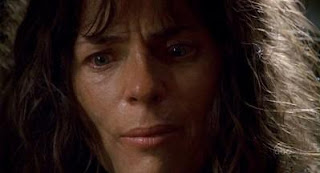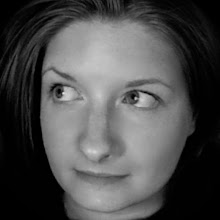
Locke sets up the theme of "Deus Ex Machina" by explaining the game Mouse Trap to a young shopper:
LOCKE: Well, you start with all these parts off the board. And then, one by one, you build the trap - shoe, bucket, tub - piece by piece it all comes together. And then you wait 'til your opponent lands here on the old cheese wheel. And then if you set it up just right, you spring the trap.In Locke's case, his father was setting the trap for him to convince him to donate his kidney. In a larger sense though, this description also applies to the entire story arc of the show.
It's become clear over the last 5 seasons of LOST that a game is being played, and the Island is the prize. We're just now learning who the players are, and why exactly they want the Island in the first place. Locke's description of Mouse Trap brings to mind the conversation between Jacob and his nemesis in the season 5 finale:
JACOB: I take it you're here 'cause of the ship.
NEMESIS: I am. How did they find the Island?
JACOB: You'll have to ask 'em when they get here.
NEMESIS: I don't have to ask. You brought them here. Still trying to prove me wrong, aren't you?
JACOB: You are wrong.
NEMESIS: Am I? They come. They fight. They destroy. They corrupt. It always ends the same.
JACOB: It only ends once. Anything that happens before that is just progress.
Jacob does just what Locke describes about Mouse Trap - he starts with all the pieces (people) off the board, and then sets them up in the game. Piece by piece, person by person, it all comes together until the trap is set and ready to spring. So the question is, who is going to get caught?
"Deus ex machina" is a Latin phrase that literally means "God from the machine." It's used to describe a literary technique where a sudden twist occurs that helps solve a problem. A well-known example is "War of the Worlds," when the aliens all die because they don't have immune systems. It's often criticised as an inept plot device, but I don't hate it as much as some do. I think it can sometimes be used really well - M. Night Shyamalan's "Signs" is one example.
So back to LOST. What is the deus ex machina in this episode? My vote is for the shaft of light that comes out of the hatch right at the end. That light turning on changed everything about LOST, although we don't find out the true extent of it until season 2. The light makes Locke believe again, and he's sure of his purpose. Given what we know happens to Locke in season 5 (he's apparently taken over and used by Jacob's nemesis), I'm wondering if the shaft of light is also the "mouse trap" that has sprung, and now Locke is really caught.
More thoughts:
-We still don't know why Locke suddenly starts losing the use of his legs. It seems to be tied to his faith in the Island. As he doubts his ability to open the hatch (what he would call his destiny) his legs fail him too. Or it could be the proximity of the Beechcraft somehow. Didn't the same thing happen this past season?
-This is the first time Locke personifies the Island by saying it "will tell us what to do." I love how Boone calls him out on it. Locke's statement raises a big question: if opening the hatch is what the Island wanted him to do, what it its overall purpose?
-Along those same lines, Locke's uber-creepy dream ("Teresa falls up the stairs, Teresa falls down the stairs") leads him to the hatch. What was the purpose there? Was it because Boone had to die?
-Jack getting Sawyer to admit to having an STD (in front of Kate, no less) is great stuff. I laughed so hard.
-Locke is wearing a bright white T-shirt. By the end of the episode it's covered in Boone's blood, a visual representation of his guilt for contributing to Boone's death. The white shirt also visually connects him to Jacob.
-It seems clear now that the Beechcraft crashed on the Island while the Island was moving. That's how a plane from Nigeria was in the South Pacific.
-The voice on the radio saying "We're the survivors of flight 815," which we later find out was Bernard, was not Bernard's voice. Just a casting timing thing I think.
-I don't understand why Locke lied about what happened to Boone. It was an accident; telling a lie about it only made him seem more guilty to the other survivors. Was he more concerned about keeping the others away from the hatch?
-Anthony Cooper=complete douche. How hard would it have been for him to keep having a relationship with his son? It would have taken so little effort and would have made Locke so happy. It's like he was going out of his way just to be a jerk. I also wonder if he has some deep history that ties him to the Island.
-In his flashback, Locke is also in a white T-shirt post-surgery, this time stained with his own blood, the emotional scars of having been conned by his father.
-Is Locke being conned by the Island in the same way that he was conned by his dad? He has such complete faith that what the Island wants him to do is good, but what if he's taking orders from the bad guy rather than the good one? At the end of season 5 it certainly seems that he's been used, but we don't know yet whether it's for good or ill.





















